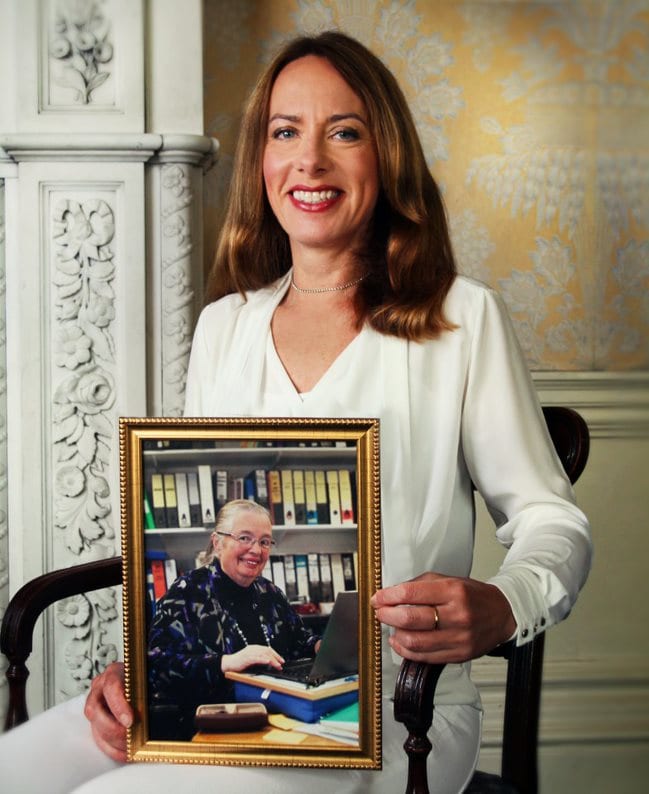To mark the 2018 centenary of the first British women winning the right to vote, we are honouring Bristol women who have changed our institution, and the world. From our first woman lecturer to the first British woman to have won a Nobel Prize, these activists, educators and agitators now take their rightful place on the walls of the Wills Memorial building – along with ten of the women in today’s University community to who continue to be inspired by their legacy.
 Professor Jean Golding OBE, Leading epidemiologist and founder of the ‘Children of the 90s’ study, with Professor Kate Robson Brown, Director of the Jean Golding Institute
Professor Jean Golding OBE, Leading epidemiologist and founder of the ‘Children of the 90s’ study, with Professor Kate Robson Brown, Director of the Jean Golding Institute
“Jean overcame much adversity in childhood, including TB and polio, and – despite showing an aptitude for biology – went on to study the more sedentary subject of maths at Oxford University at a time when women were outnumbered ten to one by men. She developed a keen interest in epidemiology (the study of health in a population) and went on to do a PhD in Medical Statistics at
University College London.
“Jean started working here in 1980 and founded the now world-famous Children of 90s study (also known as ALSPAC) in 1989. It has been charting the health and wellbeing of 14,500 mothers and their children since the early 1990s. Almost 30 years later, the three-generation cohort is truly internationally and their data has given the world a wealth of practical wisdom that millions of
people now put into practice every day.
“Jean’s own research has amounted to over 350 peer-reviewed papers, covering a range of factors associated with pregnancy, childhood and parenthood. Although she retired in 2006, Jean remains an active and valuable member of the University community. Her pioneering spirit has shown us where thinking big can lead, which is why we’ve named our data institute after her. Bringing together experts from across the University, we are finding datadriven solutions to societal challenges – an entirely appropriate legacy for a research legend whose impact cannot be underestimated, both within the NHS and internationally.”
________________________________________
The University of Bristol was the first higher education institution in England to welcome women on an equal basis to men, but our commitment to gender equality reaches far beyond this milestone. The wooden panels of the Great Hall in its Wills Memorial Building have been an all-male domain thanks to hosting portraits of its Vice-Chancellors. But now, thanks to a project specially-commissioned to mark 100 years since the first women in Britain won the right to vote, a series of ten portraits redresses the balance and celebrates notable Bristol women who have changed the institution – and, indeed, the world.
